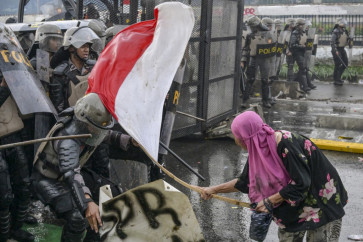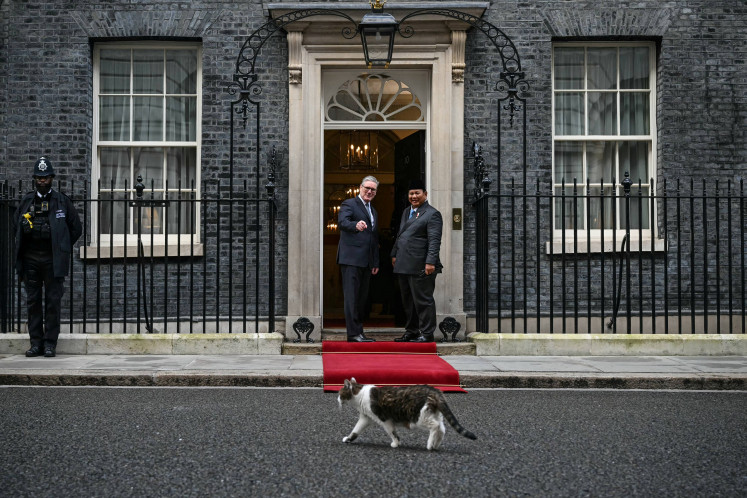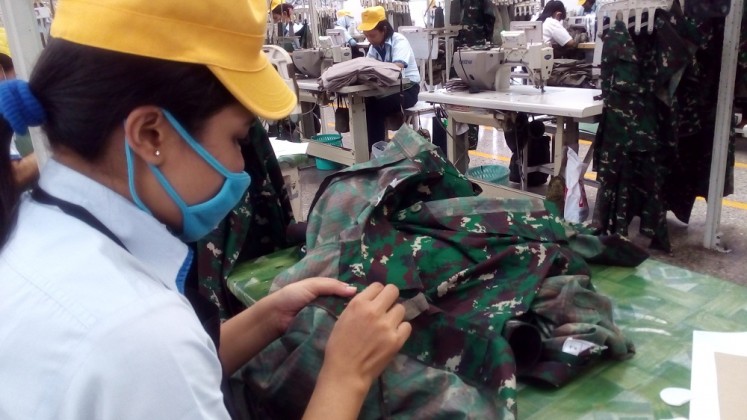Popular Reads
Top Results
Can't find what you're looking for?
View all search resultsPopular Reads
Top Results
Can't find what you're looking for?
View all search resultsSri Andajani: Thousand Islands, conservation or submersion?
JP/Theresia Sufa“I do hope the people living in Kepulauan Seribu [Thousand Islands] National Park will take responsibility and value the sea as a major life sustaining reserve before the island group is submerged,” park head Sri Andajani said a few days ago
Change text size
Gift Premium Articles
to Anyone
J
span class="caption" style="width: 398px;">JP/Theresia Sufa“I do hope the people living in Kepulauan Seribu [Thousand Islands] National Park will take responsibility and value the sea as a major life sustaining reserve before the island group is submerged,” park head Sri Andajani said a few days ago.
Kepulauan Seribu National Park (TNKpS) is a group of 78 islands in Jakarta’s northern waters. In 1982, the islands were declared a marine reserve. In 2002, that was changed by a decree of the forestry minister, and the islands were established as a national park covering an area of 107,489 hectares.
Two of the 78 islands, Panjaliran Barat and Panjaliran Timur, have become the government’s core area, where sea turtles are conserved and public access is denied. Six other islands are inhabited by local communities, while the rest belong to private individuals and companies.
Sri Andajani, born in Ngawi, East Java, on January 7, 1959, and one of three Indonesian women currently heading national parks, said the TNKpS was struggling with various problems, including the accumulation of garbage from Jakarta’s 13 rivers, all emptying into the island’s waters.
There is also fish breeding by means of keramba or underwater cages on six islands, complete with diesel oil spillage from barges operating in the southern part of the island group.
Individual owners of the other islands are less concerned with conservation, with some even building dams by moving undersea coral, which is obviously harmful to the marine ecosystem.
Meanwhile, many visitors to privately owned islands do not ask for permission to visit the national park, neither have island owners reported guests, even though their islands are in fact located within the park.
In 2010, almost 14,000 people visited the TNKpS, but the public’s enthusiasm lacked a proper sense of belonging so that many of those heading for private islands entered the park without permits, thus reducing the state’s non-tax revenue based on a 1998 government regulation on national park entry fees.
“Though the islands are their property, they should get permits because we manage the sea, or [they should] travel by helicopter straight to their destinations. What they’ve done so far is enter the TNKpS with their guests from Marina Beach in Ancol without permits. Even tour operators sometimes ignore the requirement to obtain Conservation Zone Entry Permits [SIMAKSI],” Sri said.
According to Sri, permits are mostly sought by students planning to conduct research in the TNKpS as well as visitors organizing educational tourism programs. SIMAKSI papers can be obtained from the TNKpS office on Jl. Salemba Raya in Central Jakarta.
“We’ve been facing these issues and the Kepulauan Seribu regional administration isn’t yet fully aware of the urgency of conservation while on patrol duty, particularly to inspect inhabited islands. I always gather locals for discussions. I understand they need attention and empowerment, but we should also nurture their sense of responsibility to the sea and all its resource potential for human survival. We’re trying to harmonize both aspects,” said the mother of two.
The TNKpS is the only national park in Indonesia located adjacent to the hub of the capital city of Jakarta, so it is actually easier for the central government to control. The park, offering beautiful views, with rows of islands in close proximity, should inspire all stakeholders to share the obligation of conserving its potential for the benefit of future human existence.
“Without such a commitment on the part of all stakeholders, I’m sure it’s just a matter of time that the Kepulauan Seribu National Park will be submerged. In conservation efforts, we’ve been cooperating with local communities and fishermen in the planting of mangroves, especially on privately owned islands so as to prevent abrasion, as our field personnel are very limited,” Sri said.










